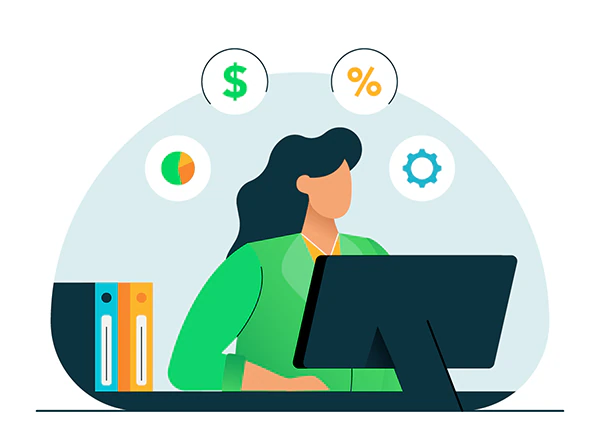Managing your business finances can feel like a challenge, but with the right accounting software, it doesn’t have to be. Whether you’re just starting out or looking to streamline your existing processes, the right software can make your life a whole lot easier. But with so many options, how do you know which one is right for you? Here’s a simple guide to help you choose the best accounting software for your business.
- Understand Your Business Needs 🎯
Before diving into the software options, take a moment to define what your business actually needs.
Business Size: Are you a solo entrepreneur or managing a growing team? Small businesses may need basic features like invoicing and expense tracking, while larger businesses might require more advanced tools like payroll and multi-user access.
Industry-Specific Features: Different industries have different needs. For example, a retail business might need inventory management, while a service-based business may prioritize time tracking and billing.
Room to Grow: Choose software that can grow with you. As your business expands, your accounting needs might change, so select a solution that offers scalability.
- Look for Ease of Use 🌟
Your accounting software should simplify your life, not complicate it. Consider these factors when looking for an easy-to-use system:
Cloud vs. Desktop: Cloud-based software is typically more accessible, allowing you to manage your business finances from anywhere. Desktop versions might be more suitable for businesses that prefer to work offline, but they can be less flexible.
User-Friendly Interface: Choose software with a clean, intuitive interface. You don’t want to waste time learning complicated systems when you could be focusing on growing your business.
- Key Features You Need ⚙️
Look for accounting software that offers features that will actually help your business run smoothly:
Invoicing and Billing: Make invoicing simple by choosing software that allows you to send professional invoices, track payments, and automate recurring invoices.
Expense Tracking: Connect your bank accounts to automatically track and categorize expenses. This will save you time and help you stay on top of your spending.
Payroll: If you have employees, choose software that can handle payroll and tax calculations automatically.
Tax Reports: The best accounting software generates detailed reports to help you stay prepared for tax season. Look for one that makes tax filing easy and error-free.
Integrations: Make sure your software can integrate with other tools you use, such as CRM systems, e-commerce platforms, and more. This will help you avoid manual data entry and keep everything connected.
- Pricing That Works for You 💸
When considering software pricing, it’s essential to think about your business’s budget. Here’s what to consider:
Subscription vs. One-Time Payment: Most cloud-based accounting software comes with a subscription fee (monthly or annual), while desktop versions typically involve a one-time payment. Choose the option that fits your cash flow.
Hidden Fees: Be aware of extra costs, such as charges for additional users, payroll services, or premium features. Read the fine print to make sure there are no surprises.
Free Trials: Many platforms offer free trials. Use these to test out the software and see if it fits your needs before committing.
- Customer Support You Can Count On 💬
When you run into a problem, you need reliable support. Look for software that offers:
Responsive Support: Choose a platform that provides multiple support channels, such as live chat, phone support, or email, so you can quickly get help when you need it.
Helpful Resources: Good software comes with educational materials, tutorials, and FAQs that help you make the most of the features available.
- Top Accounting Software Picks 📊
Here are some of the most trusted accounting software options:
QuickBooks Online: A top choice for small businesses, QuickBooks offers invoicing, expense tracking, and payroll, along with detailed tax reports.
Xero: Known for its user-friendly interface, Xero is great for growing businesses and integrates with over 800 apps.
FreshBooks: A solid choice for freelancers and service-based businesses, FreshBooks offers simple invoicing and time-tracking features.
Wave: A free option that provides essential accounting tools for small businesses just starting out.
- Data Security 🔐
Security is essential when dealing with financial data. Make sure the software you choose offers:
Encryption & Backup: Ensure that your data is encrypted and backed up regularly to prevent data loss.
Two-Factor Authentication: Look for software that offers two-factor authentication (2FA) for added security.
Ready to Choose the Right Software?
Choosing the right accounting software is a big decision, but it doesn’t have to be overwhelming. By understanding your business’s needs, testing out different options, and considering your budget, you’ll be well on your way to finding the perfect solution.
Need help setting up your accounting system? MackBooks LLC is here to simplify your financial processes. Contact us today and let’s make your business finances work for you!📞



